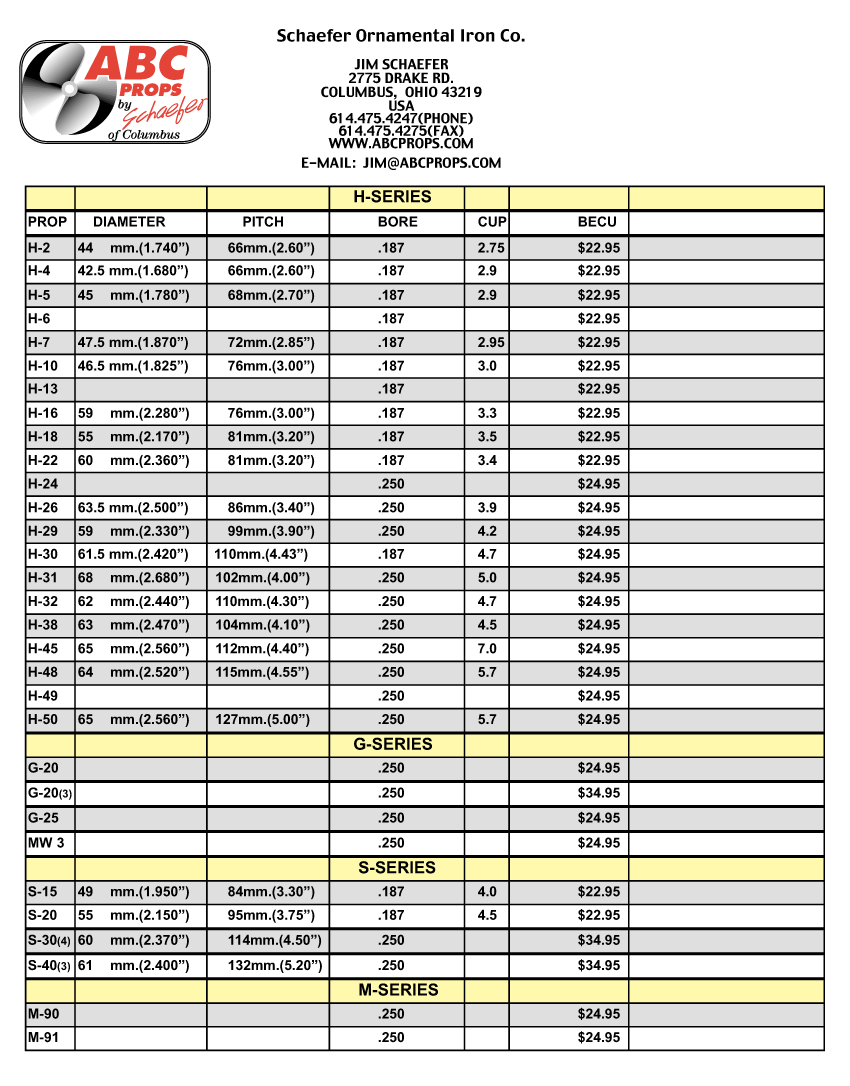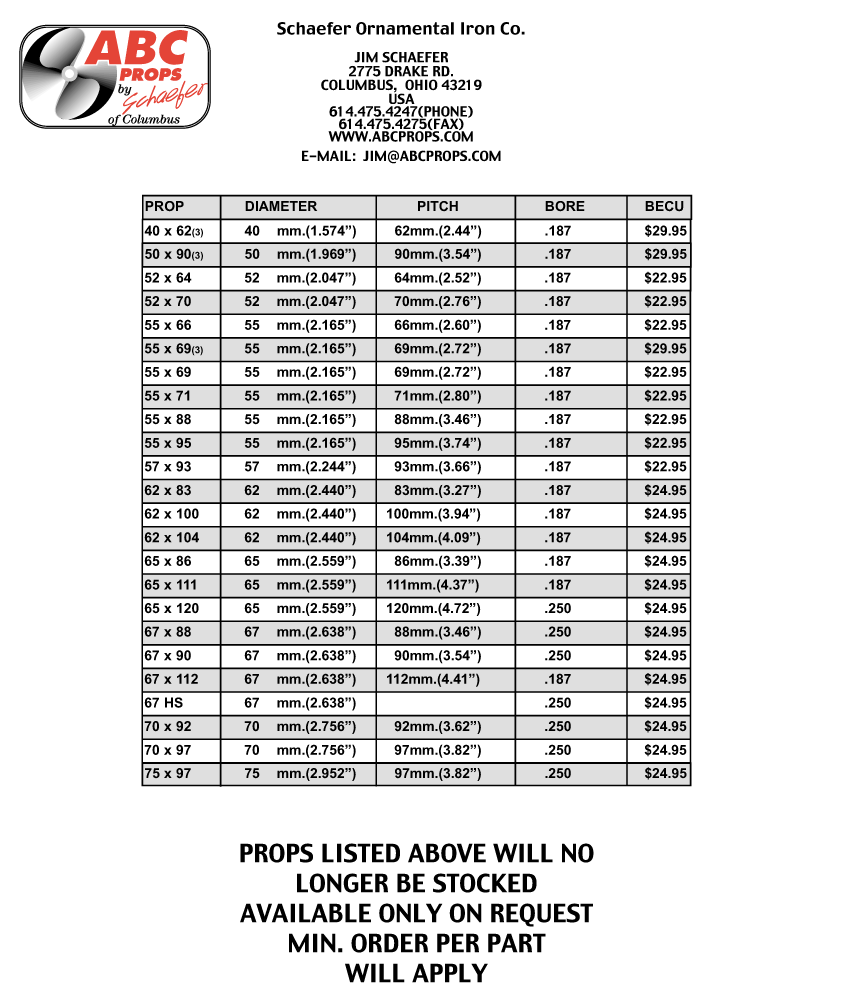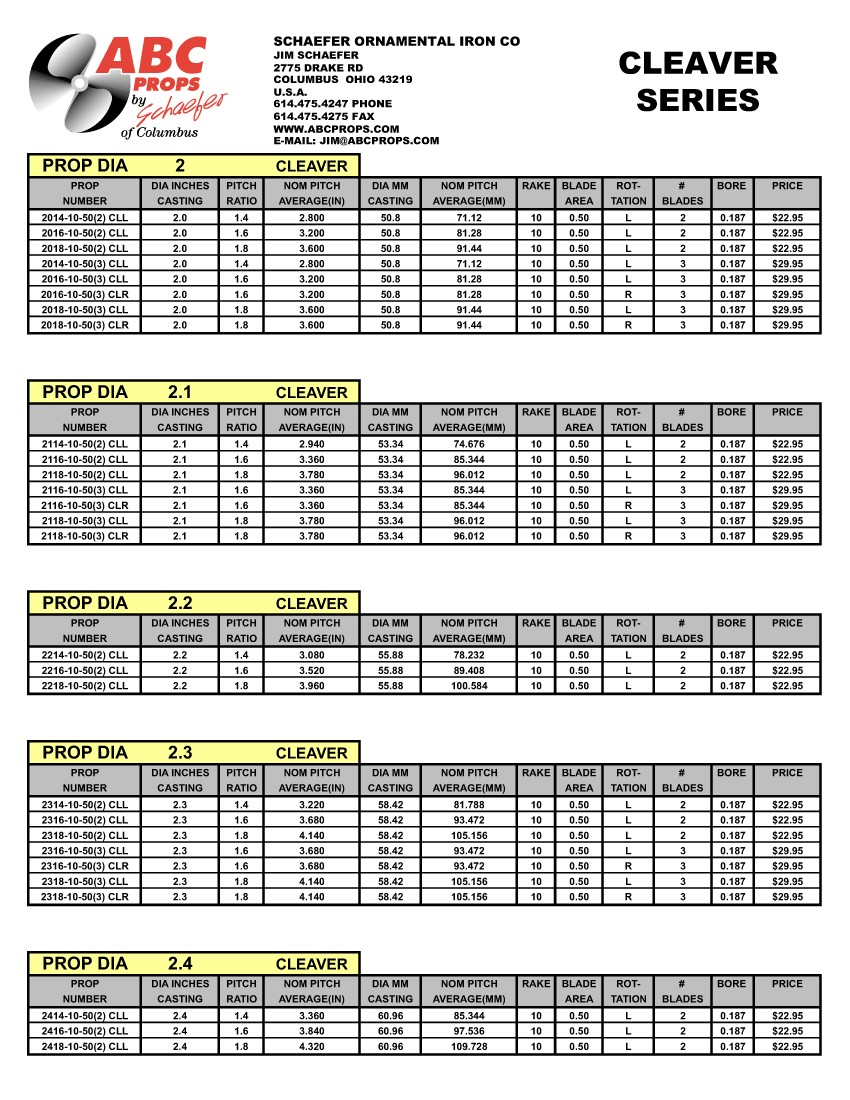Ever felt like your boat isn’t performing as it should? Maybe it struggles to get on plane, or perhaps it revs too high at cruising speed. The culprit could be an improperly sized propeller. Choosing the correct prop is crucial for optimal boat performance, fuel efficiency, and a smoother, more enjoyable ride. This comprehensive guide will walk you through the ins and outs of boat propeller sizing, helping you find the perfect match for your vessel.
Matching a propeller to a boat isn't a one-size-fits-all endeavor. Many factors influence the ideal propeller dimensions, including the boat's hull design, weight, engine horsepower, and intended use. Understanding these factors and how they interact is the first step toward achieving peak performance on the water.
The history of propeller sizing has evolved alongside advancements in boat and engine technology. Early propellers were often simple, fixed-pitch designs, with limited options for customization. Today, boaters can choose from a wide array of propeller types, materials, and sizes, allowing for precise matching to specific boat and engine combinations. Accurately determining the appropriate propeller size is vital to avoid potential issues like poor fuel economy, engine damage, and reduced boat speed.
Proper propeller sizing involves understanding key terms like diameter, pitch, and cup. Diameter refers to the overall size of the propeller, while pitch represents the theoretical distance the propeller would advance in one revolution. Cup refers to the curvature of the propeller blades, which affects thrust and efficiency. For example, a propeller with a 14-inch diameter and a 21-inch pitch would theoretically move 21 inches forward with each rotation, assuming no slippage.
Choosing the right propeller size is analogous to selecting the correct gear on a bicycle. Just as a low gear helps you climb hills, a lower pitch propeller aids in acceleration and pulling heavy loads. A higher gear allows for greater speed on flat terrain, similarly, a higher pitch propeller enables higher top speeds. Balancing these factors is essential to achieve the desired performance characteristics for your specific boating needs.
Three key benefits arise from correct propeller sizing. First, it maximizes fuel efficiency, allowing you to spend more time on the water and less money at the fuel dock. Second, it optimizes performance, whether you prioritize quick acceleration, a high top speed, or efficient cruising. Thirdly, the right propeller reduces engine strain, extending the life of your outboard or inboard motor.
Advantages and Disadvantages of Different Propeller Types
| Propeller Type | Advantages | Disadvantages |
|---|---|---|
| Aluminum | Cost-effective, good for general use | Less durable than stainless steel |
| Stainless Steel | Durable, high performance | More expensive |
Best Practices for Propeller Selection:
1. Consult your boat and engine manufacturer's recommendations.
2. Consider your typical boating activities (e.g., waterskiing, cruising).
3. Use a propeller sizing calculator or consult with a propeller expert.
4. Test different propellers to fine-tune performance.
5. Regularly inspect your propeller for damage.
Frequently Asked Questions:
1. How do I know if my propeller is the wrong size? - Signs include poor acceleration, excessive RPMs, or difficulty reaching top speed.
2. Can I change my propeller myself? - Yes, but it's essential to follow proper procedures and safety precautions.
3. What is propeller cavitation? - Cavitation occurs when air bubbles form on the propeller blades, reducing efficiency and potentially causing damage.
4. How often should I replace my propeller? - Propellers should be replaced if damaged or if performance significantly declines.
5. What materials are propellers made of? - Common materials include aluminum and stainless steel.
6. What is the difference between a right-hand and a left-hand propeller? - This refers to the direction of rotation when viewed from astern.
7. How do I measure my current propeller's pitch and diameter? - These measurements are typically stamped on the propeller itself.
8. Where can I buy a new propeller? - Boat dealers, marine supply stores, and online retailers sell propellers.
Tips and Tricks for Propeller Sizing: Keep a logbook of your boat's performance with different propellers to track improvements and identify optimal settings. Consider consulting with a propeller expert for personalized recommendations based on your specific boating needs.
In conclusion, selecting the correct propeller size is a critical aspect of boat ownership that significantly impacts performance, fuel economy, and overall enjoyment on the water. By understanding the factors influencing propeller selection and following the guidelines outlined in this article, you can ensure your boat operates at its peak potential. Remember to consult your boat and engine manufacturer’s recommendations, consider your typical boating activities, and don't hesitate to seek expert advice. Investing the time and effort in proper propeller sizing will reward you with a smoother, more efficient, and ultimately, more satisfying boating experience. Taking the time to find the perfect prop for your vessel will significantly enhance your time on the water, allowing for optimal performance and a more enjoyable experience.
Boat Propeller Size Chart - The Brass Coq
5 Signs Its Time to Replace Your Commercial Ship Propeller - The Brass Coq
Define Propeller Torque at Jane Hawkins blog - The Brass Coq
Outboard Propeller Size Calculator - The Brass Coq
Boat Propeller Kit at Edmond Walker blog - The Brass Coq
Boat Propeller Motor For Sale at Veronica Hardin blog - The Brass Coq
Pontoon Motor Size Chart - The Brass Coq
14 x 19 Stainless Steel Propeller For Honda Outboard Engine 115 - The Brass Coq
Boat Propeller Sizing Chart - The Brass Coq
Propeller Chart For Boats - The Brass Coq
Propeller Calculator Outboard at Rebekah Thomason blog - The Brass Coq
Boat Prop Size Chart A Visual Reference of Charts - The Brass Coq
Cruise Ship Propeller Size - The Brass Coq
4 blade versus 3 blade propellers - The Brass Coq
Boat Prop Size Chart - The Brass Coq














